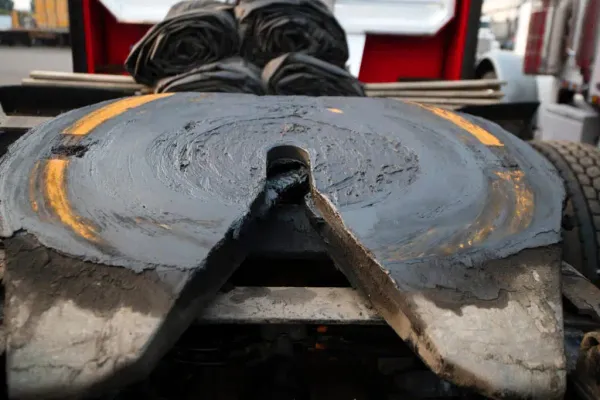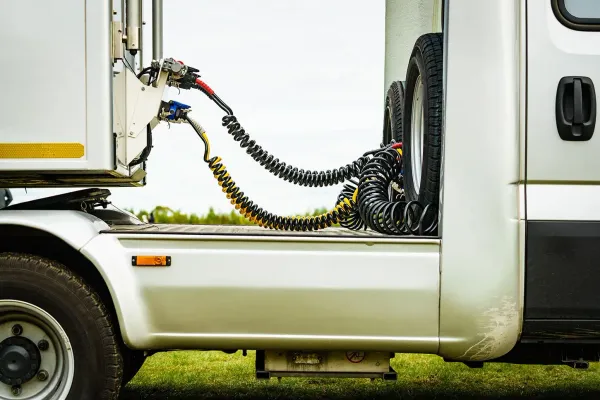Five Warning Signs You Need Mobile Repair (Before It’s Too Late)

In the world of long-haul trucking, things don’t often break when it’s convenient. They break on the shoulder of a two-lane highway in Nebraska, or in the back lot of a warehouse in rural Arkansas, or at midnight in a truck stop a hundred miles from the nearest shop.
When trucks break down far from help, mobile repair becomes more than a service—it becomes the lifeline that keeps your operation moving.
But here’s the truth: most breakdowns don’t come out of nowhere. They’re usually preceded by small issues that, if caught in time, could have been fixed before the truck ever left the yard. The trouble is, those small issues are easy to dismiss—until they aren’t.
Over the years, I’ve worked with fleets of all sizes, and I’ve seen a common pattern. Ignoring the early signs leads to bigger trouble later. The key is to recognize when mobile repair isn’t just a response—it’s the smart move before things spiral.
Here are five warning signs that tell you it's time to call mobile repair before it’s too late.
1. Your Truck Is Starting Hard—or Not at All
Every driver knows the feel of a truck that doesn’t want to wake up. Maybe it turns over slower than usual. Maybe it needs a few tries before it catches. Maybe you find yourself giving it a little “talking to” before it decides to cooperate.
Hard starts are often dismissed as "just cold weather" or "one of those days," but they’re usually the first sign of trouble in the electrical or fuel system. Weak batteries, corroded terminals, bad starters, or clogged fuel lines are all culprits—and they only get worse with time.
If your truck is struggling to start once, it will eventually fail to start altogether. And if that happens at a loading dock or on a job site, you're not just facing a repair bill—you’re eating hours of downtime and a missed delivery window.
Calling a mobile technician when starting problems begin—not after they strand you—is the difference between controlled maintenance and costly emergency response.
2. You Smell Something You Shouldn’t
This one doesn’t get talked about enough, but experienced drivers know it well: a truck that smells different is a truck that’s telling you something.
A burning smell? That’s usually your brakes or clutch. Sweet, syrupy odors? That could be leaking coolant. Rotten eggs? You might have battery or exhaust system issues. Even a faint fuel smell can mean a dangerous leak.
Too often, these warning signs are chalked up to “normal truck smells.” But if the odor is new, stronger than usual, or follows a mechanical event—like hard braking or a rough shift—it needs to be checked out. Fast.
Calling mobile repair at the first sign of unusual smells can prevent fires, coolant loss, or even engine failure. It’s not overcautious—it’s smart.
3. Your Gauges Are Talking—But You’re Not Listening
Every dashboard light and gauge has a job: to tell you what the engine can’t say out loud.
Rising engine temperatures, falling oil pressure, irregular voltage—all of these are early indicators that something’s off under the hood. But in the rush to get down the road, it’s easy to shrug off a flickering warning light or a single spike in engine temp.
That’s a mistake.
A gauge out of range—even for a few minutes—can signal the start of a serious problem: a failing water pump, a bad sensor, or a slow coolant leak. The longer you run with a problem like that, the more expensive the repair becomes. And if you blow a head gasket on the side of the road, no amount of mobile help is going to make that an easy fix.
Don’t wait until you’re steaming on the shoulder. Call for mobile diagnostics the moment those gauges start drifting from normal.
4. You’ve Got Tire Trouble—Even If It Hasn’t Blown Yet
A tire doesn’t need to blow out to cost you money. Uneven wear, slow leaks, and vibration at speed are all red flags that should never be ignored.
A tire with a nail in it might hold air long enough to get you to your next stop—but maybe not. A worn-down edge could mean alignment issues or bad suspension parts, which chew through fuel and shorten the life of the tire and the truck.
More importantly, roadside tire failures are one of the most common causes of extended downtime—and they're entirely preventable.
If you’re noticing odd wear, pressure issues, or if the tread is getting close to the line, don’t wait for the blowout. Mobile tire repair can patch, rotate, or replace before that small problem becomes a big one—keeping your load safe and your schedule intact.
5. You’re “Making Do” With Temporary Fixes
Here’s a truth we don’t say out loud enough in this industry: drivers and operators are often too good at “making do.”
They know how to nurse a bad alternator across a few more states. They know just how to wiggle a loose connection to get the lights back on. They use zip ties, duct tape, and ingenuity to keep rolling. And while that speaks to the grit and problem-solving in our industry, it can also be dangerous.
A temporary fix is exactly that: temporary. If a problem has been patched up more than once, or if your drivers are carrying more tools for limping home than for the actual job, that’s a flashing neon sign that mobile repair is overdue.
Mobile techs can come to you, fix the issue properly, and eliminate the risk of that “quick fix” turning into a major failure.
Final Thoughts: Mobile Repair Is Best Before the Breakdown
Too many people think of mobile repair as the 911 call of the trucking world. Something breaks, you pull over, and then you dial for help.
But that mindset costs fleets more than they realize. When you call for mobile help before things go wrong—when you act on the early warning signs—you shift from reactive to proactive. You take control of your uptime, your safety, and your schedule.
And that’s not just good business. That’s how you build a fleet that lasts.
Whether you run a hundred trucks or just one, the principle is the same: listen to your equipment, trust your gut, and don’t wait until you’re stuck to get help.
Because the real cost isn’t in the mobile repair—it’s in the silence before the call.



